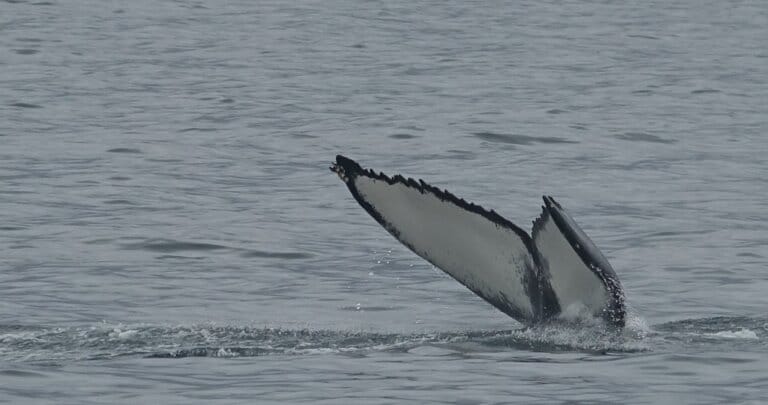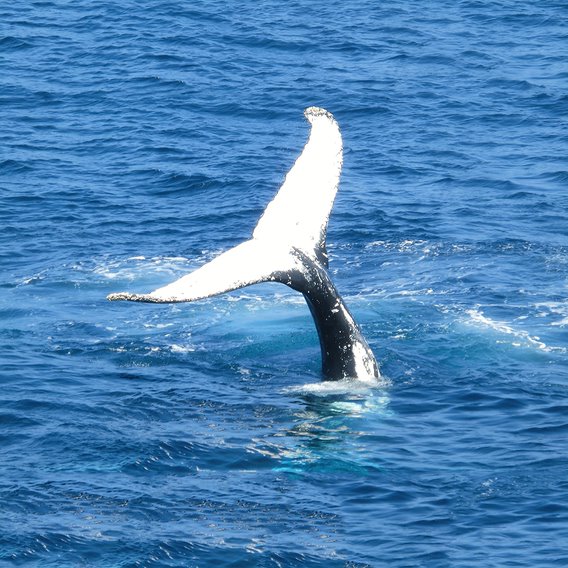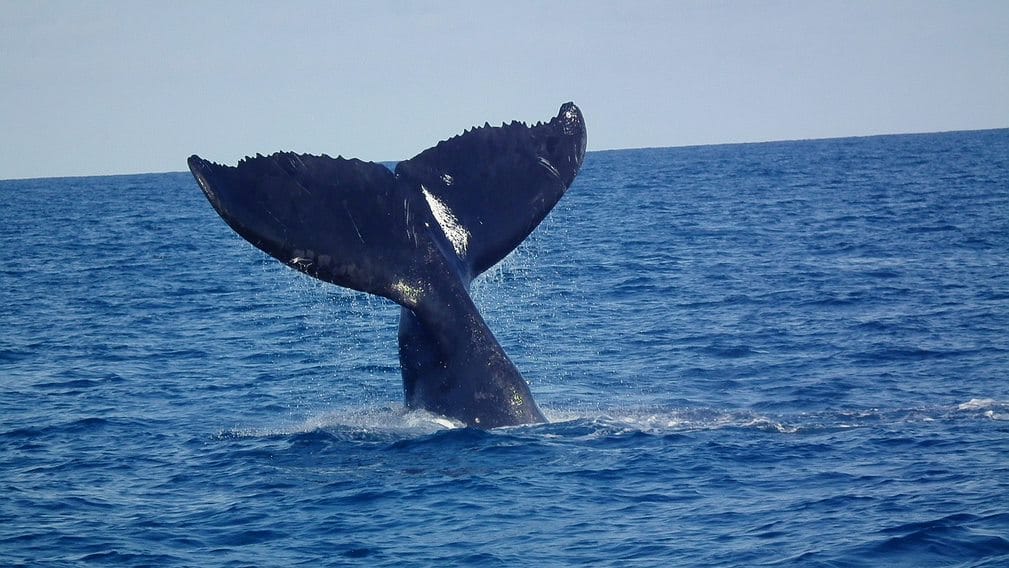Whale watching in Reykjavík; How do we identify the Humpback whales?

When whale watching in Reykjavík our guides often surprise our customers by not only being able to know the species of cetacean we see from a distance but also being able to identify individuals. To the inexpert eye, all whales look the same!
By Lucky Byfleet
Humpback identification is a little different from other whales. Most cetaceans are identified by their dorsal fins, their shape, size, colour, any scratches, injuries, or imperfections, and with humpbacks, it is the same. However, their large, beautiful tail flukes give us a more accurate ID. Unlike other animals that must be tagged to identify an individual, the tail fluke of a humpback, and the patterns on it, are unique to each whale, and whilst those tail patterns may change over the years it is possible to keep track of those changes, and still see natural markers from decades ago on them. They range from all black to all white, and have trailing edges.

Humpback Identification while whale watching in Reykjavík
By systematically photographing the underside of the tail, which is often shown clearly when the whale is diving or breaching, a catalogue of the whales visiting Icelandic waters has been made. This happens all over the world, and there are awesome websites like Happy Whale where images of whale tails can be classified worldwide. This way the migration of the whale can be tracked easily. More locally in Iceland, we have a brilliant catalogue with the ISMN Database, but after years of taking people out to watch humpbacks, our guides can often identify individuals at a glance, and then later use the photos to double-check them.

For Whale ID and tracking worldwide have a look at Happy Whale, the ISMN Database for Iceland, MER Society for western Canada, Alaska Humpbacks and Juneau catalogue for Alaska, Jupiter Research for Hawaii, CWR for Western Australia, EastCoastWhales for Eastern Australia, and WhaleAndDolphinTrust for New Zealand.
We hope that has helped you know what features to look out for when you come on your epic whale watching adventure! Of course, our highly knowledgeable crew will happily point out the subtle differences between individuals when you come out whale watching with Sea Trips Reykjavik here in Iceland. Make sure you have a chat both with our guides on the top decks and with our wonderful captains in the wheelhouses. They are always delighted to share their favourite whale watching moments and want to share their love for these incredible creatures with the world.

